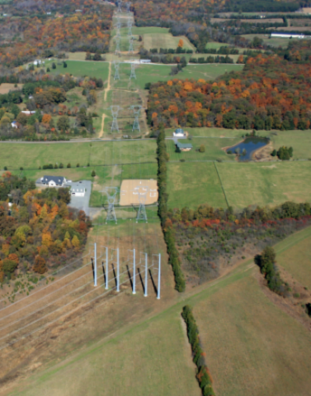Data centers are a revelation in energy efficiency and are driving the clean energy transition
by Josh Levi, president of the Data Center Coalition
When it comes to the future of data centers in the commonwealth, some of the recent public conversation has centered on whether and how much the industry impacts the environment. Often, a narrow focus is placed on the amount of electricity consumed by data centers; it is significant, and the industry has never shied away from the fact.
However, what receives less attention are the energy and climate benefits unlocked by data centers. For a fuller picture of this industry, it’s important to consider what data center energy usage represents (or, what functions it supports in our economy), how efficiently it is consumed and the sources of supply.
Let’s start by considering our total annual energy use, which has effectively flattened this century. How can the average person do and produce so much through technology without increasing their energy footprint? Advances in lighting technology, namely the evolution from incandescent to LED light bulbs, are often credited for boosting productivity and certainly are important. But the real story is around the prevalence of data and advancements in computing.
We do more with less because of data. Data centers aggregate our collective computing demands – everything from sharing photos with friends and family and streaming our favorite shows, to supporting online learning and remote work, and storing important medical and financial information – efficiently and securely. They also help unlock important energy savings by facilitating our ability to remotely adjust our smart thermostats, lighting and household appliances.
Previously, these types of computing resources were dispersed across businesses, which was far less efficient and secure. In 2010, nearly 80% of data center computing was done in smaller traditional computer centers, largely owned and operated by non-technology companies. By 2018, approximately 89% of data center computing took place in larger cloud data centers.
By centralizing computing resources, data centers have been able to leverage innovations in design, equipment, and technology to maximize energy efficiency. While computing output at data centers jumped sixfold from 2010 to 2018, energy consumption only rose 6%.
So, data centers by their very nature are a model – even a revelation – of energy efficiency.
But leading data center owners and operators have not stopped at energy efficiency. They have also led the charge locally and globally in developing and procuring carbon-free energy. Many leading data center companies have established and pursued aggressive clean energy and sustainability goals; some have committed to achieving carbon neutrality and utilizing 100% clean energy within the next 10 years. And significant progress has been made!
For example, Amazon’s renewable energy purchases last year brought it closer to powering its operations with 100% renewable energy by 2025, five years ahead of its original target. In 2021 – for the fifth consecutive year – Google matched 100% of its annual electricity consumption with purchases of renewable energy. Meta’s global operations including its data centers, since 2020, have achieved net zero greenhouse gas emissions and are supported by 100% renewable energy. For its data centers in Virginia, Microsoft is procuring approximately 80% renewable energyfrom solar, wind, and hydro resources, having signed power purchase agreements with multiple providers. And these companies have set out to reach even more ambitious sustainability goals by 2030.
Even when compared to other industries, data center owners and operators stand out for their leadership and commitment to decarbonization through clean energy. According to a January 2023 American Clean Power Report, technology companies have contracted more clean energy sources than any other industry. Furthermore, leading technology companies with data center operations in Virginia routinely place in the top five companies committed to procuring clean energy, as determined by the Clean Energy Buyers Association. And seven companies with data center facilities in Virginia – including Equinix, Digital Realty, Iron Mountain, and QTS – are ranked in the top half of the U.S. Environmental Protection Agency’s Green Power Partnership National Top 100.
Furthermore, data centers are using their scale and supplier relationships to ensure other businesses and industries are doing their part to decarbonize. Equinix, for example, is engaging the top two-thirds of its suppliers (by emission levels) to set their own science-based targets for reducing emissions by 2025.
Of course, the industry’s demonstrable commitment to environmental sustainability is in addition to the significant economic benefits it delivers to our local communities. In 2021 alone, data centers represented $6.8 billion of investment in Virginia – nearly two-thirds of all economic investment in the commonwealth – and supported the creation of more than 45,000 jobs. Moreover, data centers are a significant boon for local tax revenue, generating in some Virginia counties at least $13 for every $1 in services required, which translates to vital funding for our schools, affordable housing, social services and other priorities.
However, we should also not lose sight of the energy and climate benefits unlocked by data centers; they are highly efficient facilities driving clean energy development and supporting all facets of our modern economy. Best of all, they are doing it right here in Virginia.
(Editor’s Note: The opinions expressed in this article are those of the author themselves and not necessarily those of PW Perspective, LLC or its affiliated stakeholders. Virginia Mercury is part of States Newsroom, a network of news bureaus supported by grants and a coalition of donors as a 501c(3) public charity. Virginia Mercury maintains editorial independence. Contact Editor Sarah Vogelsong for questions: info@virginiamercury.com. Follow Virginia Mercury on Facebook and Twitter.)



